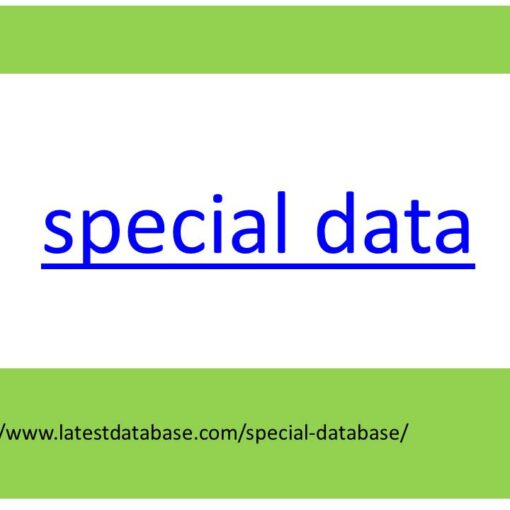In today’s digital era, data has become the lifeblood of businesses and organizations across the globe. With the explosive growth of data, traditional database management systems are facing unprecedented challenges. Enter the next frontier: specialized databases. These innovative systems are designed to handle specific data types or workloads, offering improved performance, scalability, and flexibility. In this article, we will explore how specialized databases are shaping the future of data management. The Rise of Specialized Databases Traditional relational databases have long been the workhorse of data storage and management. However, as the complexity and variety of data increase, specialized databases are gaining traction.
From graph databases for relationship-driven data to time-series databases
For analyzing time-stamped information, these purpose-built systems are optimized for specific use cases. Specialized databases are emerging to handle diverse data Chinese Australia Phone Number List types, such as spatial data, document data, and even unstructured data like social media feeds. Enhanced Performance and Scalability One of the key advantages of specialized databases is their ability to deliver enhanced performance and scalability. By tailoring the underlying architecture to specific data requirements, these databases can efficiently process and analyze vast amounts of data. For instance, columnar databases excel at handling analytical workloads, enabling faster query performance and reducing storage footprint. In contrast, key-value stores offer high-speed data retrieval, making them ideal for caching and real-time applications.
The specialized nature of these databases allows organizations
Optimize their data operations and unlock new possibilities. Flexibility and Adaptability Specialized databases also offer greater flexibility and adaptability compared to America Phone Number traditional monolithic systems. They allow businesses to adapt to changing data requirements and evolving technologies more effectively. As data sources and formats continue to expand, organizations can choose the most suitable specialized database to handle specific data types.
Furthermore, modern specialized databases often support open standards and interfaces, enabling seamless integration with existing systems and tools. This flexibility empowers organizations to leverage the best database technology for each use case, creating a more agile and future-proof data ecosystem. Unlocking New Insights and Opportunities By leveraging specialized databases, organizations can uncover new insights and opportunities from their data.




